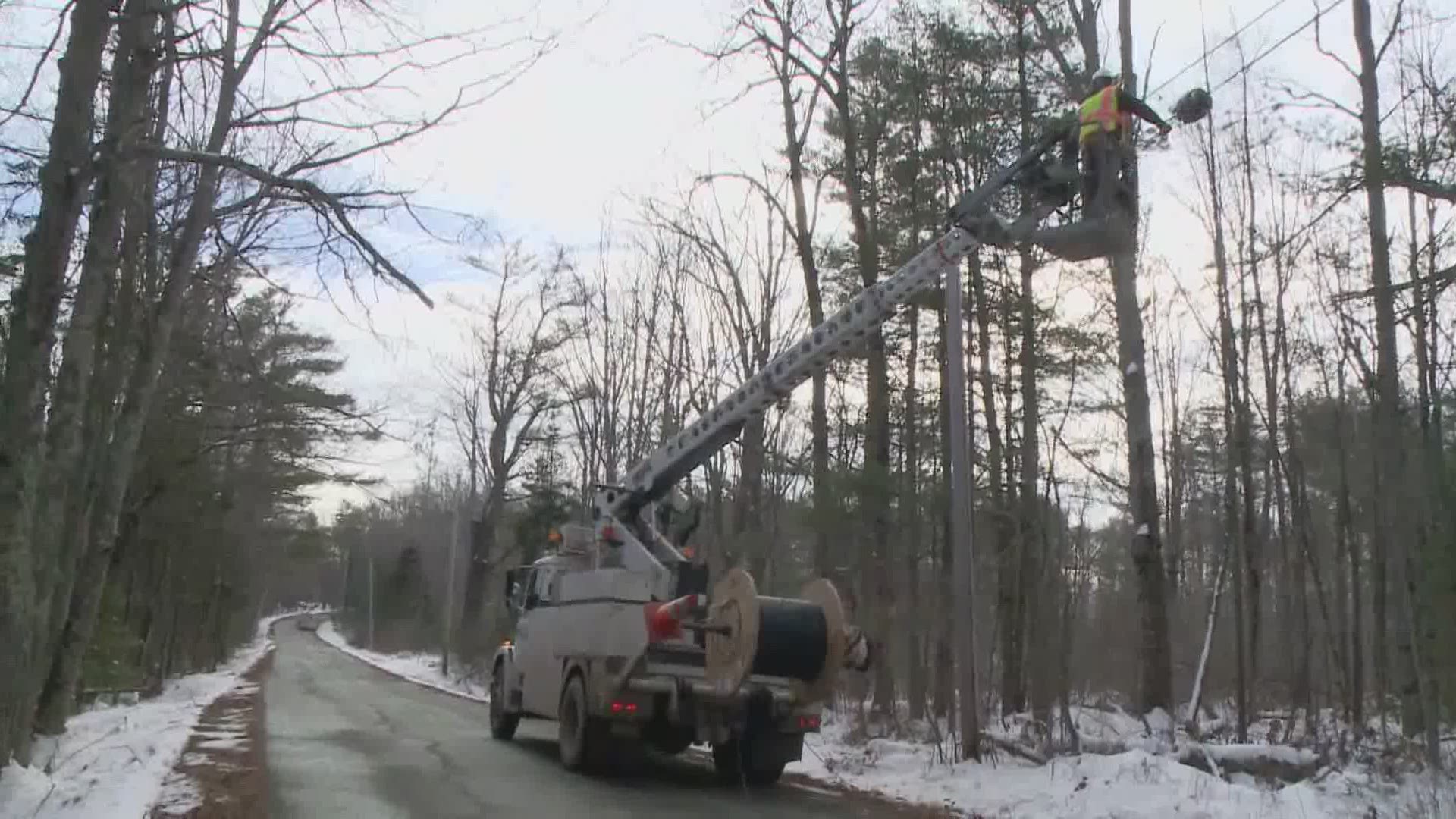LINCOLNVILLE, Maine — The bucket trucks crowd the road, and fiber optic cable unspools along another rural road of this mid-coast town. In a few more days, that cable will help change school and work for scores of local families.
Lincolnville is one of four towns where a special state grant project is bringing high speed internet service to 350 students and teachers.
In a time of remote learning and working, true broadband has become vital. Ask Paul Russo, principal of the Lincolnville Central School.
“A lot of our students, when you meet with them (remotely), weren’t able to turn video on because of a lack of bandwidth. So it was a leap of faith on who was there. So those issues should be resolved now,” Russo said.
Lincolnville, Hope, Appleton, and Bristol are benefitting from a $2.6 million state grant, made with federal CARES Act money, to get broadband to rural students and teachers with no other options. Tidewater Telecom and a sister company, Lincolnville Networks, received the grant in October, facing a very tight deadline to get it all done by the end of this month.
“It was October 15 we submitted our proposal,” Alan Hinsey, marketing and sales director or the companies, said. “October 29 we started the project. We had 2 months to do 100 miles of fiber. That’s crazy! “
Crazy or not, the companies are working overtime to get it all done by Dec. 30, according to vice president and operations director Randall Manning.
“We have five contractors working with us. We have our own crews, (working) weekend and nights," Manning said. "The stuff we’re doling is incredible to get this accomplished.”
Manning said that as of Tuesday, roughly 20 households had already been turned on. He said the remainder should see the high-speed connection working by or before the 30th.
Hinsey said most of the homes are in very rural parts of the towns, often back from the road, requiring lots of work to get fiber to the home, along with the need for a complicated connection.
The service will be 100 mbs for both download and upload, said Hinsey, which is significantly faster than the minimum required standard for broadband. Manning said the fiber connection will allow many options in the years to come. He also said that a fringe benefit of the project will have fiber service covering much of the four towns, speeding up the arrival of high speed service for other residents.
The state grant program is $5.6 million total, covering about 730 students in communities in a number of other parts of the state. All are currently dealing with requirements for remote learning, a reality that seems likely to continue for at least the remainder of this school year.
RELATED: Maine Broadband Coalition rolls out speed test and map to get a clearer picture of digital divide
Principal Russo says getting everyone properly connected should be a real help, especially in homes with students in several grades.
“We try to run schedules so students don’t overlap in different grade levels, obviously we can’t do that with the high school but we are less likely to do that now because the bandwidth in the home will be much better,” he said.
Another fringe benefit, he says: enough bandwidth for families with parents working from home at the same time the kids are connected.

